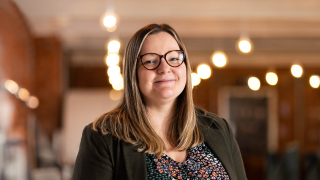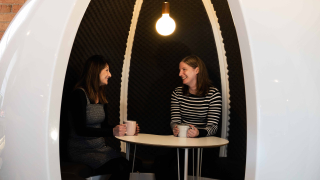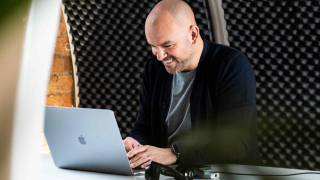
It’s 2024. Sustainability has long since been considered a buzzword. It’s an imperative.
And while governments scramble to set (and stick to) sustainability targets, the general public is becoming more attuned than ever on the sustainability topic. And it’s not just impacting brand allyship and buying trends on consumer goods, it’s also becoming a key decision factor in the realm of higher education.
The younger generation is certainly more ‘awake’ when it comes to matters surrounding the planet and ethical matters, so it stands to reason that the pressure is now being felt by universities across the globe.
People & Planet recently compiled a league of sustainable UK universities, ranking them in terms of overall sustainability. The criteria for the rankings is comprehensive, and universities are judged not only by their policies and strategies, but also by their actions. Water reduction, energy sources and recycling are the more obvious measurables, but the rankings also consider things like ethical investments and banking, sustainable food and workers rights.
So the ‘token gesture’ is no longer an option for those higher education institutes that want to tick the sustainability ‘box’ – they are being held accountable, and the student demographic is listening. That means universities need to ensure that their sustainability policies are more than just a pretty piece of paper. They need to demonstrate action to survive.
Universities are already scrambling over each other when it comes to shouting about course quality, experience and employability. So the sustainability angle could be that key point of difference to leverage.
In the UK, some institutions are already building their sustainability legacies.
The University of Nottingham was shortlisted in the THE Awards 2023 for its innovative micro prospectus. The university has abandoned the traditional, bulky printed prospectus in favour of a sleek mini prospectus that fits in the palm of a hand. Featuring a QR code, it sends the prospective student off to a digital prospectus instead. According to the university, this has saved more than 72 tonnes of paper and over 18,000kg of CO2.
The university also claims that “because every tonne of paper uses 54,000 litres of water, we’re saving the equivalent amount to keep every student at our uni hydrated for over 6 weeks too.” It’s memorable marketing like this that will get noticed by the next generation of planet-conscious cohorts.
Keele University was among the first universities in the UK to declare a climate emergency, and are working towards achieving net zero in 2030, well ahead of the UK governments 2050 target. In an effort to achieve this, its on-campus Low Carbon Energy Generation Park features two wind turbines and 12,500 solar panels, allowing them to generate up to 50% of the university's electricity needs from renewable sources.
One of the ways King’s College London is minimising its carbon footprint is through its award-winning food and drink policies on campus. With focus on plant-based diets and partnerships to prevent food waste, the university is tackling sustainability in creative ways. Recent graduation events have featured 100% plant-based menus, with all single used plastics removed in favour of fully compostable alternatives. Switching to prosecco by the keg, instead of the bottle, also helped them save 1 tonne of CO2 emissions.
Kingston University is encouraging students to become ‘agents of change’ with its Sustainability Innovation Challenge. This initiative coincided with COP26 held in Glasgow, and included lightning talks, in-curricular sessions and a hackathon facilitated by the students. It’s an empowering approach that enables students to drive the changes they wish to see.
The emerging role of sustainability is becoming ever harder to ignore in the world of higher education. It’s pretty obvious where the easy and more obvious wins lie for universities, but it’s the creative and innovative approaches like the ones above that will seriously boost interest from those environmentally-conscious students who are becoming ever more discerning when choosing where to study.
As a creative at an agency with an education and training sector specialism, I bear witness to the new and exciting initiatives that universities are devising, and it is empowering to see universities embracing new ideas in this changing landscape.
For Fluid, ensuring we can be genuine partners helping our education clients towards their goals is a responsibility we’re excited to shoulder. It may be lots of small things that add up to a lot – like working with more sustainable print processes, or finding a more sustainable, digital alternative – but there’s also scope to think bigger.
I’ll leave you with just one example of how Fluid has been able to support the University of Nottingham:
Reducing paper is an important part of the university’s own sustainability journey, with the aforementioned micro-prospectus leading the charge. So when the university decided to retire its physical graduation programmes in 2022, we were able to deliver a digital-first programme, while improving the student experience. Last summer, graduates and their families were able to download their digital-first programmes, and were served the information only relevant to their graduation ceremony – trimming the unnecessary ‘fat’ of the previous one-size-fits-all printed programme. It’s more succinct, feels more personal, and saves another truckload of paper.







